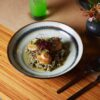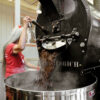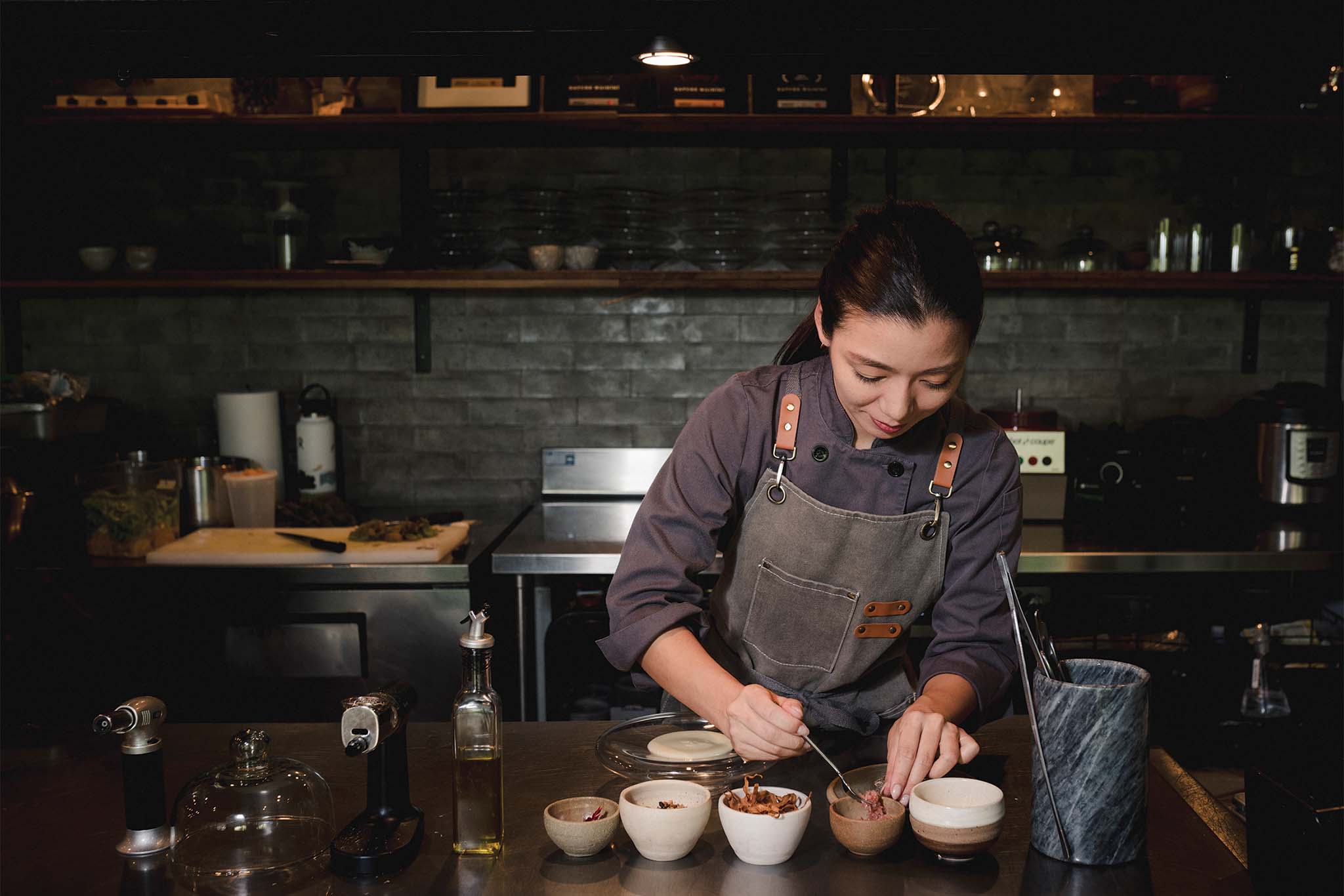Text by Sarah Burchard
Images by IJfke Ridgley
Nae Ogawa
Tokyo native Nae Ogawa grew up around a family dinner table supplied with fresh fish her dad caught and produce her mom grew and foraged. Eventually, Ogawa began adding her own touches, picking wild mushrooms and chestnuts or making umeboshi with plums from their tree. It soon grew into a love of cooking that would later thrust Ogawa into Tokyo’s world-class kitchens. At 18, she began studying at Tokyo’s Hattori Nutrition College, among the top culinary schools in Japan. The college’s emphasis on shokuiku, a holistic approach to whole foods pioneered by a Japanese doctor, meant that students were trained as both chefs and nutritionists. It left a lasting impression on Ogawa, who went on to work at Narisawa, a two-star Michelin restaurant in Tokyo with a focus on sustainable dishes; Manhattan’s upscale restaurant Bouley, whose approach to French nouvelle cuisine helped usher in the farm-to-table movement; and La Bourse et La Vie, a Parisian bistro known for French classics made with fresh, quality ingredients.
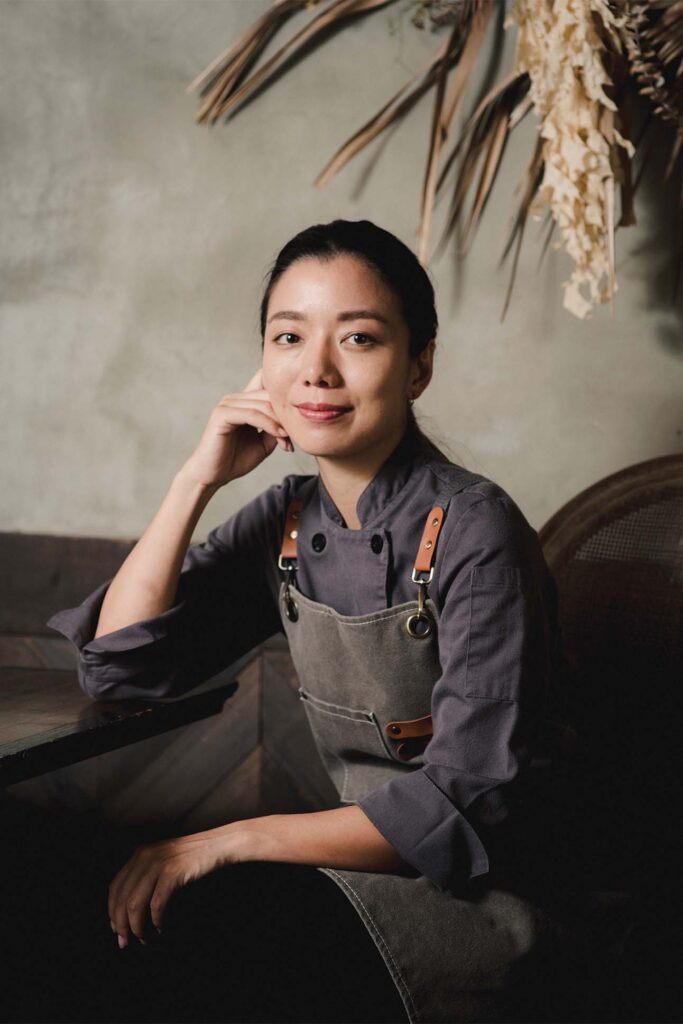
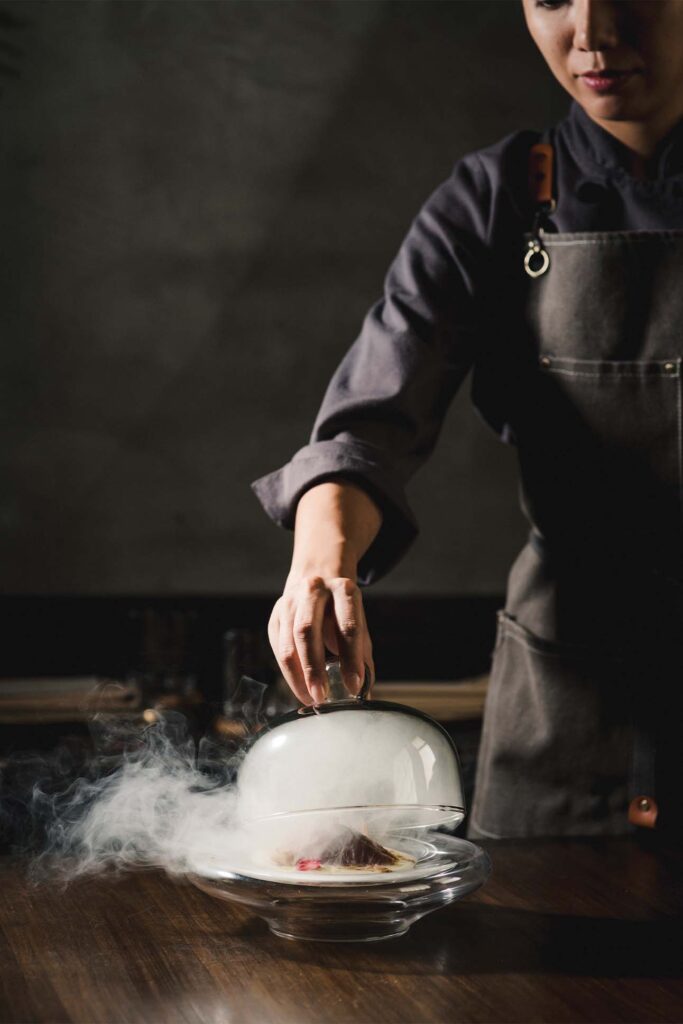
In 2017, she moved to Honolulu to become the opening sous chef at Paris.Hawaii, which blended Parisian, Japanese, and Hawaiʻi cuisine. The restaurant shuttered in 2020—a casualty of the pandemic but a blessing for Ogawa, who was soon tapped by Zetton Inc., the restaurant group that launched Paris. Hawaii, to lead a new enterprise in the former restaurant’s Waikīkī space. At first, Ogawa had her doubts. “I was super good at [being a] sous chef, supporting somebody, and I was happy with it,” she says. But Zetton presented an offer she couldn’t refuse. As the new executive chef, she had carte blanche to reconceptualize the restaurant and create her own dishes.
Enter Nature Waikīkī, whose menu reflects Ogawa’s Japanese upbringing, French culinary training, and love for nature. Each dish highlights at least one ingredient from local farms: a cheese platter features chèvre from Sweet Land Farm in Waialua; the harvest salad’s medley of root vegetables is grown at Kahumana Organic Farms in Wai‘anae. And she utilizes invasive animals such as taʻape (blue striped snapper) and axis deer in efforts to mitigate their negative impacts on the local ecosystem and demonstrate to guests how their food choices directly impact the environment. As she crafts new dishes, including a tasting menu that changes with the seasons, Ogawa routinely turns to nature for inspiration: “When I feel that the ingredients I choose have a positive impact on farmers or the environment, I feel a sense of fulfillment in what I do, and it motivates me.”
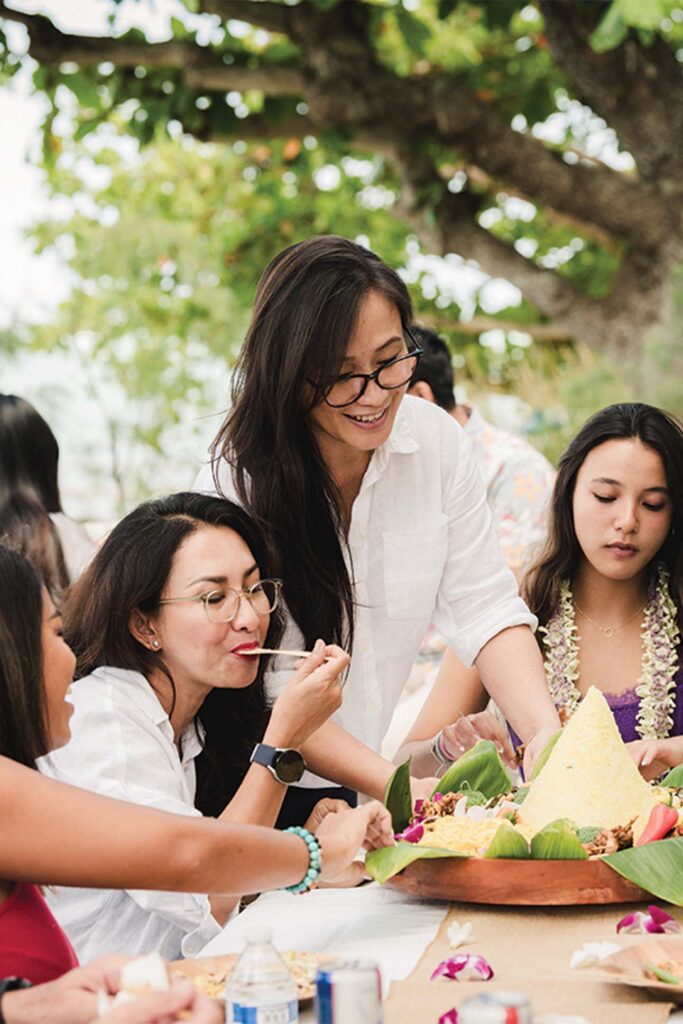
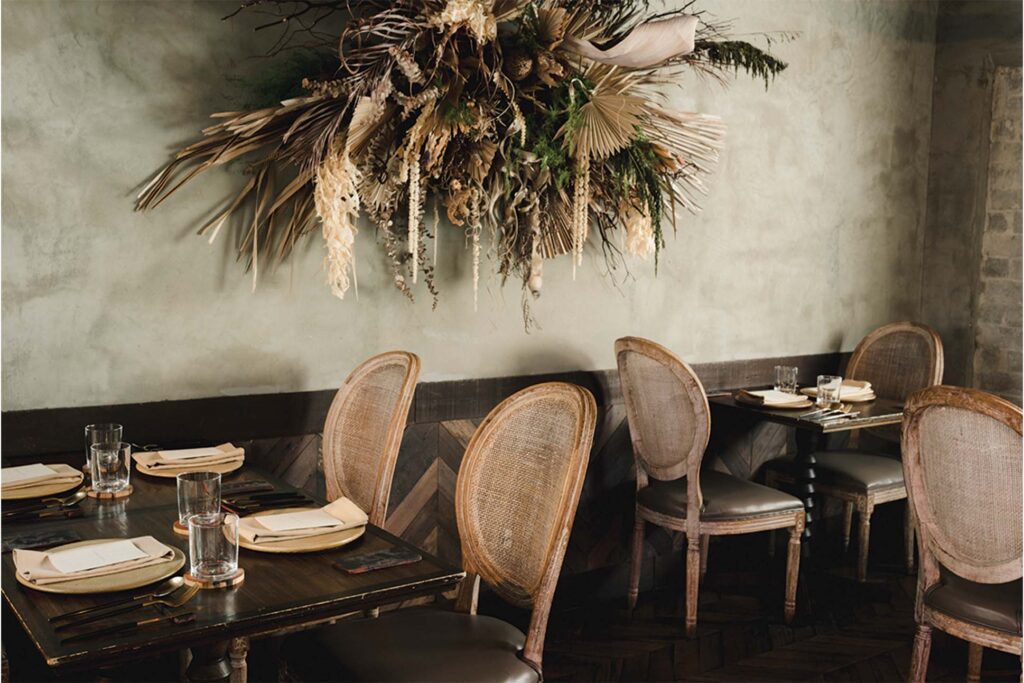
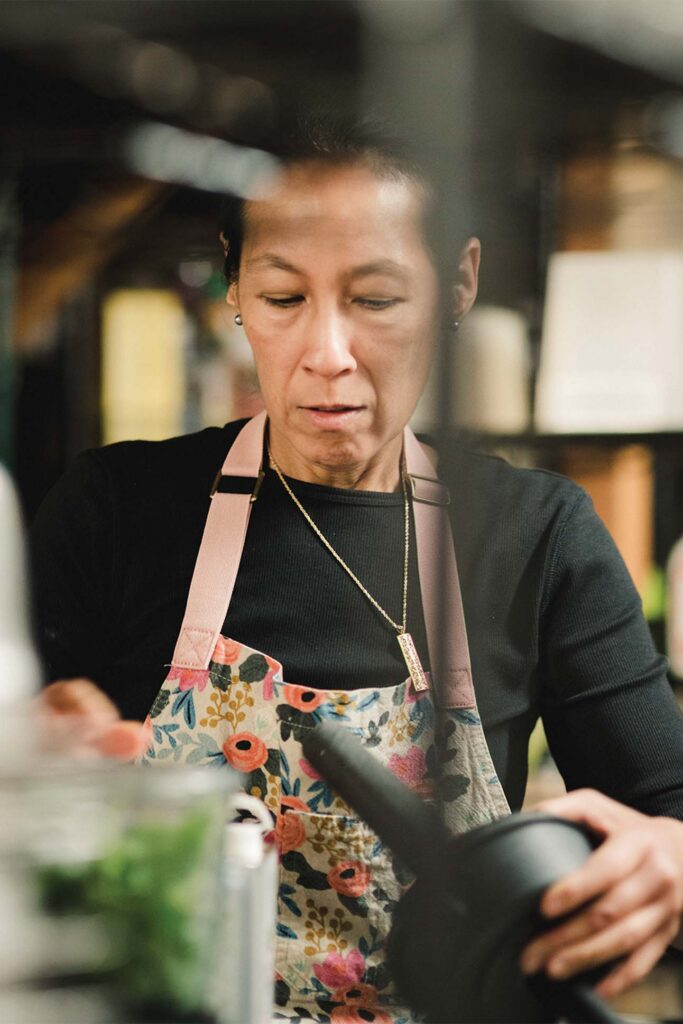
From left to right: Private chef Regina Lapian, the dining room at Nature Waikiki, and Robynne Maiʻi of Fête.
Regina Lapian
Upon putting down roots on O‘ahu in 2002, Regina Lapian realized she missed the foods of her hometown of Jakarta. Seeking out key Indonesian ingredients such as pandan and mangoes, she set to work on a word-of-mouth catering business anchored by recipes Lapian learned from her mother, a talented cook who owned a pub in Jakarta for 32 years. As she built up her private chef clientele, Lapian met Maya Soetoro-Ng, the maternal half-sister of former president Barack Obama. Soetoro-Ng, who works as a peace and leadership scholar at the University of Hawaiʻi at Mānoa’s Matsunaga Institute, was born in Jakarta and found the tastes of her heritage reflected in Lapian’s cooking. With its colorful dishes full of spices and fresh ingredients, Lapian’s classic Indonesian fare, including dishes such as beef rendang, gado gado, nasi goreng, and pandan klepon, summoned authentic Jakarta cuisine to Hawaiʻi.
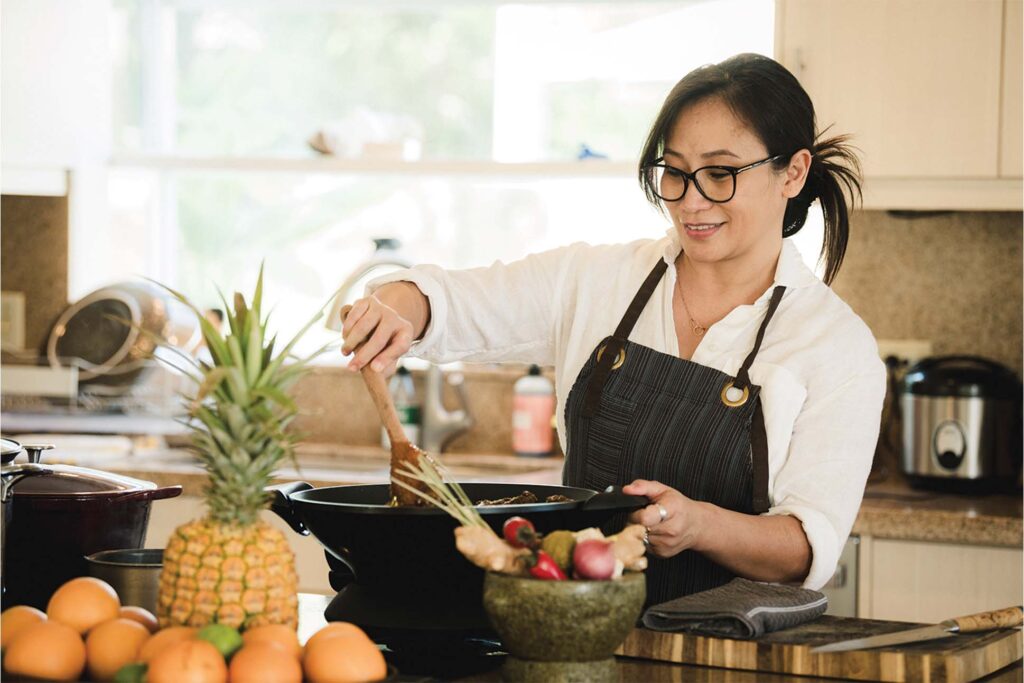
Soetoro-Ng soon became like a sister to Lapian, and today Soetoro-Ng remains one of her biggest supporters. Through the years, she has arranged for Lapian to cater some of the Obamas’ more high-profile Hawaiʻi engagements, including Michelle Obama’s birthday at the Shangri La Museum of Islamic Art, Culture & Design in 2022 and the 2018 Obama Foundation conference at the East-West Center, where Lapian’s dishes were served alongside local restaurant titans Alan Wong, Ed Kenney, and Andrew Le. Lapian also regularly caters events for the Matsunaga Institute, Soetoro-Ng’s Ceeds of Peace organization, and visiting Indonesian dignitaries. Still, Lapian never forgets her origins: “I feel like cooking for a good cause helps me give back to our community and connect to good people.”
Robynne Maiʻi
When Fête chef and co-owner Robynne Maiʻi won the 2022 James Beard Award for Best Chef in the Northwest and Pacific, the first Native Hawaiian female chef to receive the honor, the timing could not have been better. The pandemic had hit Hawaiʻi’s food industry hard and almost shuttered the restaurant, a fixture of Honolulu’s Chinatown since 2016. The award brought worldly acclaim to Fête, drawing in a new crowd of acolytes.
The road to success, however, wasn’t an easy one. Despite an impressive résumé that includes cooking at famed restaurants, working as an assistant food editor for Gourmet magazine, and co-running the culinary program at the Art Institute of New York City, Maiʻi stillfaced sexism when she moved back home to Hawai‘i from New York to open Fête. “For the first three years, it was constant,” she says. “When you’re female and little and Asian, people make a lot of assumptions.”
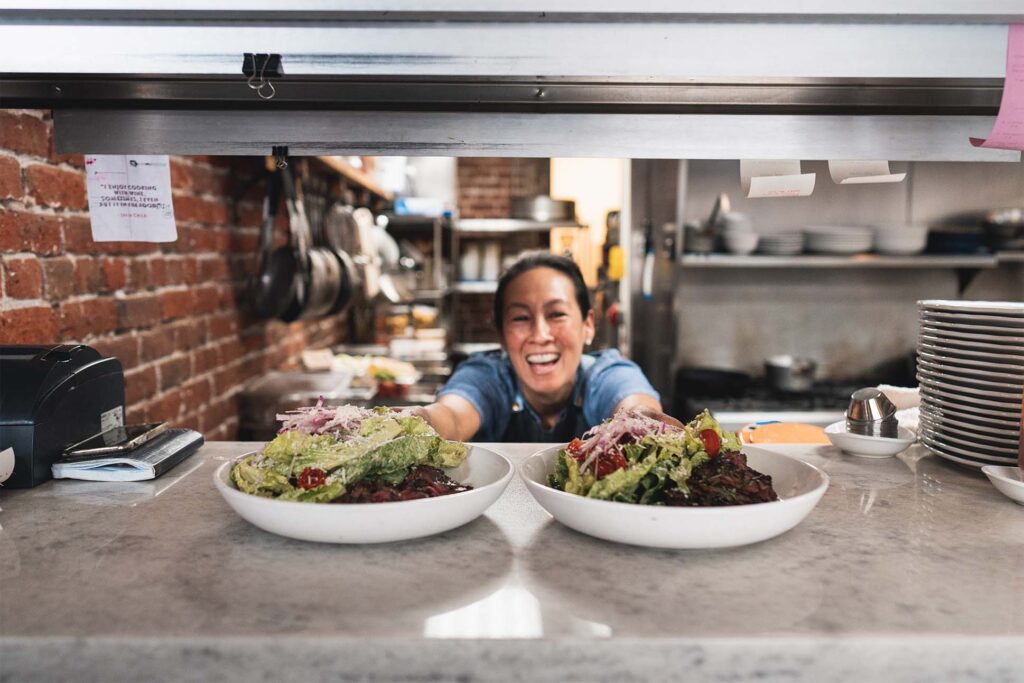
Undeterred, Maiʻi pressed on. After all, Fête had become her life’s purpose. After years of struggling with infertility, she and her husband and co-owner, Chuck Bussler, decided to instead birth a restaurant in Maiʻi’s hometown of Honolulu. Today, Fête—which Maiʻi and Bussler fondly call their hapa baby—has become a local culinary institution celebrated for its seasonal, farm-to-table approach. The vast majority of Fête’s menu is sourced from farms, fisheries, and ranches across the state, an ethos of mutual support borne from Mai‘i’s years of being underestimated as a female chef. “You have the easy part,” she constantly reminds herself. “The hard part of the gig is done already.”
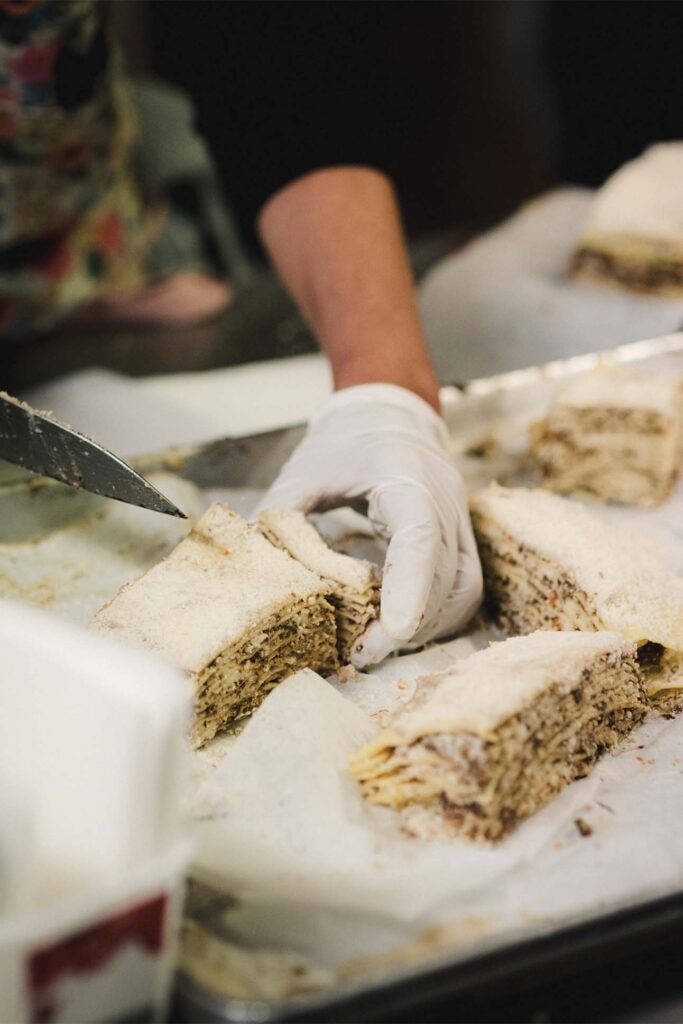
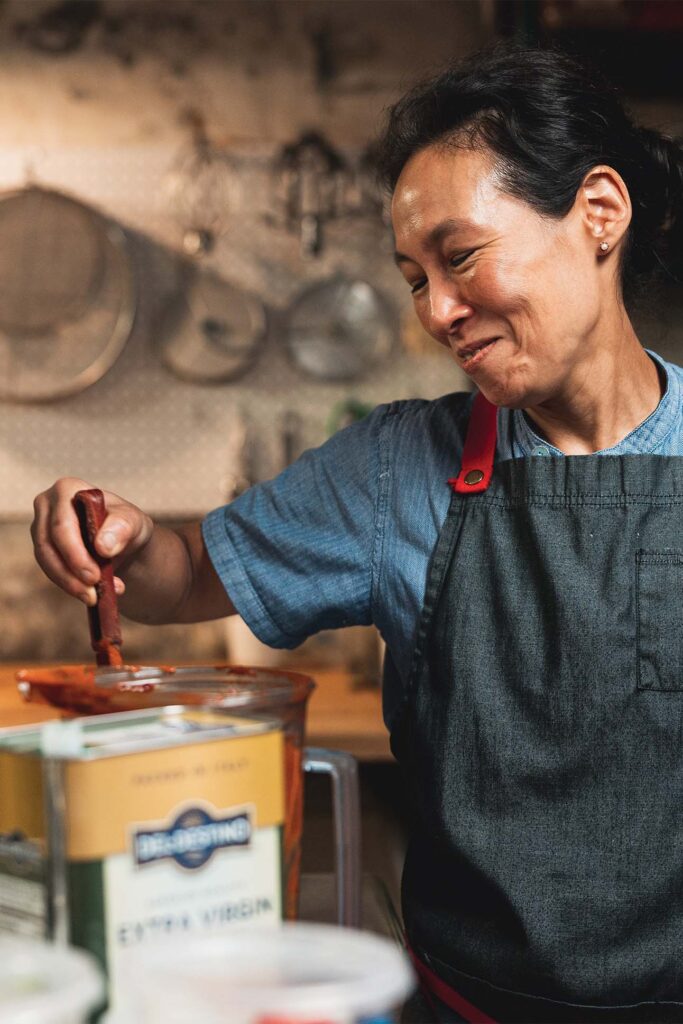
Now, two years after winning the James Beard Award, Maiʻi is ready to hand the reins to new executive chef Emily Iguchi and shift her focus to opening a second Chinatown location: a bakery and pastry shop in the former Little Village Noodle House space around the corner from Fête. Because in the end, even with all her newfound acclaim, the simple act of cooking is still what brings Mai‘i the greatest sense of fulfillment. “I really like the physicality and challenge of working with the food every single day,” she says. “It’s like yoga or being outside in nature—working with local ingredients is very close to that. It’s sort of like a wakeful meditation.”

